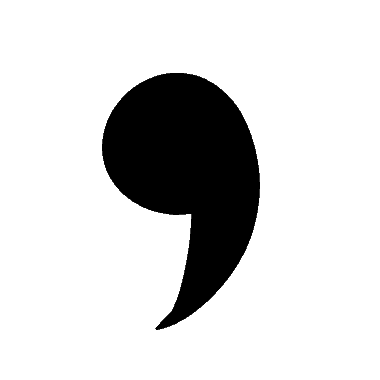Is the Oxford Comma Over?
January 11, 2023
“And” is the 3rd most common word in the English language. And, are you surprised?
In lists, the word “and” is typically preceded by a comma, but as an age-old debate, the use of this particular comma is still ongoing in the literary community. Students, writers and grammar enthusiasts are struggling to decide whether they should take or leave this highly-contested punctuation.
According to Dictionary.com, the definition of the Oxford comma is “a comma between the final items in a list, often preceding the word ‘and’ or ‘or,’ such as the final comma in the list “newspapers, magazines, and books.”
The origin of the Oxford comma can be traced back to English guides from the early 20th century, but officially got its name from its most academic creator, Horace Hart, who was the main printer and editor at the Oxford University Press from 1893 to 1915. Hart’s publishing of the comma in 1905 gave it the association with Oxford University, making it widely known as the Oxford comma.
The use, or lack thereof, of the Oxford comma is a commonly broached topic in English, journalism and writing classes. Strong emotions provoked by one’s opinion of this quotation even spans beyond those in a literary-oriented field.
Ann Lawton Browder, a sophomore majoring in international studies, said she is a prominent supporter of the Oxford comma in her everyday and school-centered writing.
“It honestly drives me crazy when I’m reading something online and the Oxford commas are omitted,” Browder said. “I swear by the Oxford comma.”
Browder, impassioned by her love for grammar, knows that even with the evolution of the English language, the comma in question is as relevant as ever.
“The more imprecise we become about grammar, the more we open our writing up to ambiguity,” Browder said. “That’s why I think it’s so important to keep the Oxford comma.”
While Browder feels strongly that the Oxford comma is imperative to the English language, others maintain that they don’t feel much about this grammatical dilemma.
Stella Gaffrey-Eley, a senior majoring in communications, said she uses the Oxford comma out of habit.
“I have nothing against the Oxford comma,” Gaffrey-Eley said. “I think we [students] have been trained to read lists with the assumption that the items are separated. … ‘And’ is a conjunction and you don’t need a comma before a conjunction unless it’s a complex sentence.”
Gaffrey-Eley said that because the rules of English grammar are taught in elementary schools across the country, this habit of using the Oxford comma from a young age seems to be the case for many students.
Andrea Segura, a sophomore majoring in creative media, said she has been taught to use the Oxford comma her whole life.
“For me, it is instinctual to use the Oxford comma, and I was never taught otherwise,” Segura said.
Bearing in mind that children are constantly told to use the Oxford comma, it is interesting to see how the usage strays over time for different students. Though, the English majors at the college-level don’t seem to stray far from the original teaching.
Camryn Haag, a sophomore majoring in English and public relations, said she generally is impartial about the Oxford comma.
“Depending on the mode in which it is being used, the Oxford comma makes sense,” Haag said. “I think a deliberate omission of the Oxford comma syntactically impacts the sentence to help prove a point or make a comparison. When writing a list without intentionality of syntax, I think Oxford commas are beneficial to organize the list, especially if a comma is used between other items in the list.”
Haag brings the perspective of someone focused on the English language and the proper rules that accompany it. The necessity of the Oxford comma and the structure it can provide in some situations in contrast with the superficiality of it in others is stark.
In the world of journalism, the Associated Press stylebook, which is coveted as the rulebook for those in the press, has long been understood to say that journalists and other writers for media-centered fields, such as public relations and advertising, should not use the Oxford comma. But in May 2022, an editor for the AP Stylebook said the policy regarding the Oxford comma has been “widely misstated.”
“We do, in fact, use the serial [Oxford] comma in all but simple series,” said Paula Froke, an AP editor. “By simple, we mean simple.”
The superfluous nature of the Oxford comma is one that holds back the literary community from fully embracing its use. And so, writers and students everywhere wait for the day when they will know definitively whether to take or leave the Oxford comma.











